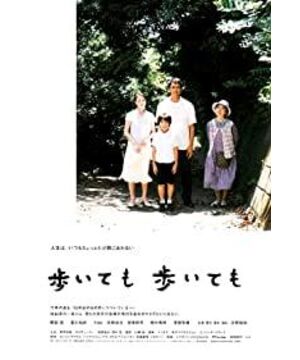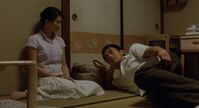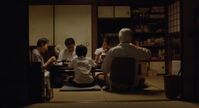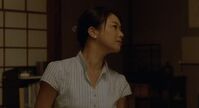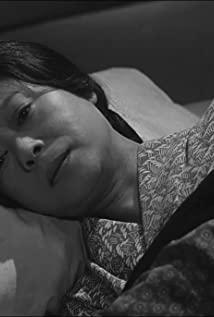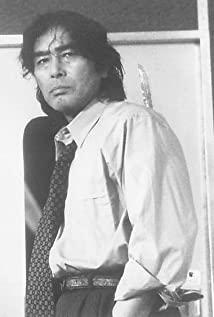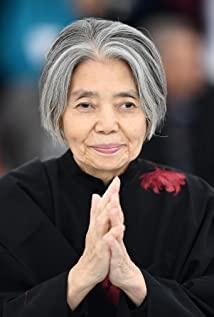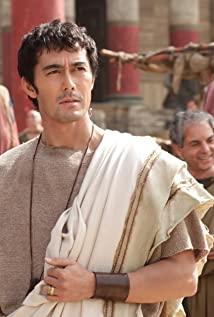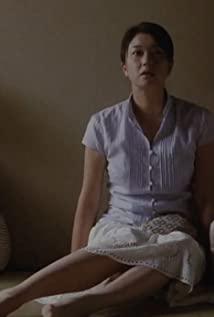Some people say that Ozu Yasujiro's shadow can be seen in Hirokazu Ee's movies. Indeed, in this impetuous era, he is one of the rare directors, willing to think about death, and the scene is as calm as water. In this [Non-stop], the director still does not give up the topic of death, and still gives life weight by death, but this time it will make the audience wonder what kind of love and love a person has to his parents. Nostalgia can make such a movie.
Because of the funeral of the eldest brother, many brought their remarried wives and sons back to their hometown for one night. The movie is a detailed record of the day and night when many families are reunited with their parents. This is a traditional oriental family. The mother talks a lot and has a sophisticated optimism and fun. It has become a warm dependence at home. At the beginning of the movie, many of her cutting vegetables are featured, and the concept of "home" flashes, like fresh water droplets on the ingredients. ; Father is stubborn and contradictory, with superficial majesty and internal suffering, he rushes away impatiently when everyone is taking photos, but is willing to listen to the ideals of his grandson patiently. The open line conflict in the story lies in the emotional estrangement between the father and the son. After losing his beloved eldest son, the father realized that the little son who had been ignored had a deep grudge against him. With the friction between the two, many old scars were uncovered; the dark line conflict lies in Zeng. The father, who is a famous doctor, refuses to accept the various manifestations of the old. He will be in a daze when he is alone.
The mirror used in the movie follows the consistent style of Hirokazu Edema. Almost all the shots are still. The matched inner scenery and people and things are as elegant and calm as ever, but different from [distance], discussing the inevitable zone of death and redemption. Depressed and heavy, in the shots of [Non-stop], poetry is not enough to describe this quiet scrutiny of time. The director gave the closest natural picture and the cleanest emotions. The director of Lenovo made this film soon after losing his parents. Therefore, the warm and tolerant mother, the sometimes childish father, the old house scenery at the end of summer, a child who grows an inch and a half tall in summer, and the scene of family gathering at a table for dinner. The forbearance and relief of relying on each other in the face of bereavement makes people feel the deep memories of the director in each shot. There are several scenes of walking in the forest corridor, supplemented by bright tones and soothing guitar accompaniment. In the scene near the end, three generations are seen walking together, children jumping in the front, middle-aged people in the middle. Even if the pace of the elderly is still steady, it is inevitable to postpone. Therefore, it can be seen that in addition to the director exclaiming a lot of "Why is it always a step slower" to lament that important things will always be missed, it also implies another meaning: everyone is in their own life. Headless and hurry, but rarely find time to stop and wait for the parents, unknowingly their pace has slowed down, until they fall further and further behind.
Many parents in the film finally left their unfulfilled wish to pass away. That wish was as simple as watching a baseball game with their son and taking a car ride. The director's painstaking effort is the old saying, the tree wants to be quiet but the wind keeps on, and the child wants to. It can be said that the expression is not leaking, without the slightest preaching rigidity. In addition to the director's profound camera skills, the main reason should also be that he originally took out his pain to share with the world.
The original text was published in "Watching Movies" in March 2009
View more about Still Walking reviews


